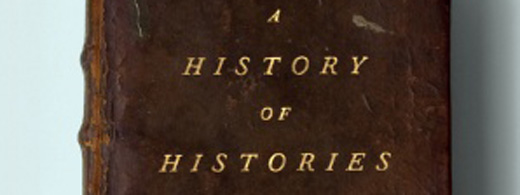Gotham Diary:
Fleet Street History
24 July 2012
Tuesday, July 24th, 2012
All that sobbing over Mozart the other night left me feeling pretty rubbishy yesterday — the weather didn’t help — so I spent the day reading, and, penitentially, reading a book that has lingered in my pile for months. As long as I didn’t feel like doing much of anything, I would at least clear the deck of a dust-catcher. I also hoped that I would learn something about the background of modern Syria from James Barr’s A Line in the Sand: Britain, France and the Struggle that Shaped the Middle East, but I didn’t; the Alawites (who seem to be at the bottom of the Syrian problem) are mentioned only once, early on.
Actually, background is missing overall from this book, which begins where there ought to have been an ending, in the wake of World War I. The Ottoman Empire (which was falling apart at its core, in palaces along the Bosphorus) had sided with Germany and Austria in that conflict, and this presented Britain and France with an irresistible temptation that they ought to have known would only bring tears and trouble. What might be done with the Levant and with Mesopotamia, the largely Arab provinces to the south of Turkey?
Barr is happy to tell us what was done, when, and by whom, but his account of events in the Middle East lacks coherence until you grasp that Barr, a former journalist with the Daily Telegraph, is reporting on a game played by bitter enemies. It would be wrong to say that “Britain” and “France” were the enemies, but they did sponsor the teams. The object of the game was to thwart the opponent’s projects in the region, and, if possible, to drive them out of it altogether. The British appeared to win when the French departed from Syria and the Lebanon in 1945, but, at least in Barr’s view, this was not the end of the game, which continued until the British were driven from Palestine by Zionist terrorists — backed by a vengeful France. What made this game more interesting than most such conflicts — a nifty handicap — was that Brtain and France were ostensibly allies throughout the period under discussion.
The book’s colorful tone is somewhat tendentious: the British are alternately naive and grandiose, while the French are snakes. Long before I got to the end, I was wondering what the other side of the story would sound like. I decided that it would sound much the same, only with the attributes reversed. Nothing could conceal the fundamental lunacy.
For the British, the object was to maintain maritime channels between England and India (and beyond). This meant controlling the Suez Canal; it also meant exploiting Iraq’s oil. After 1919, the British ought to have looked in the mirror and asked themselves why they were still maintaining an empire. In 1945, with the empire obviously about to shut down, trying to govern Palestine made no sense at all. But Britain had become a world power on the back of its far-flung possessions, and did not want to hear that what empire had given, it would also take away.
The French, it must be said, were even more deluded. They were still trying to build an empire in the Twentieth Century. Barr writes about “a small but thick-skinned group of imperialists, the Comité de l’Asie Française,” whose secretary general,
an aristocratic diplomat named Robert de Caix, reached for the history books to make his case. He argued that France had a “hereditary” right to Syria and Palestine because it was “the land of the Crusades … where Western activity has been so French-dominated since the beginning of the Middle Ages that all Europeans who live there are still called ‘Franks’.”
You don’t know whether to laugh or to cry.
There is, of course, another story that goes untold, a story that puts the Arabs, the Turks, and the Persians in the foreground. That’s the story that I think we need to hear. Barr’s subtitle is almost laughably nonsensical, since his book shows how truly incapable Britain and France were of shaping anything ithe Middle East. It is not impossible to imagine a region that would be just as troubled as today’s is without either the French or the British having shown up to do much more than buy oil.
As it was, Britain and France were the principal parties to the Peace of Versailles, a pact comprised of nightmarish follies that was founded on the humiliation of Germany (which was not a party at all). Almost everything that James Barr writes about was an unintended consequence of that Peace. His book certainly shows how little like true allies the British and the Frednch were prepared to act.
***
Â

















